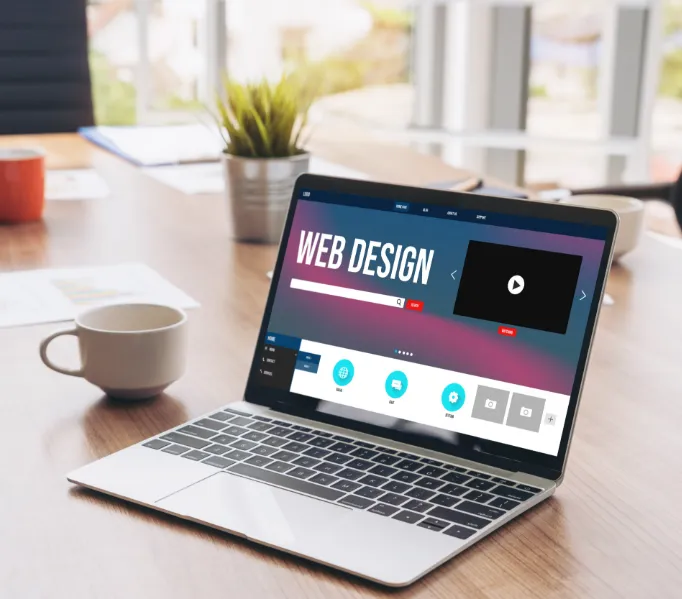Best Web Development Courses for Beginners in 2025

If you’re aiming to start a career in web development, choosing the right course can feel overwhelming. With so many platforms and programs available, it’s important to find one that aligns with your learning style, budget, and long-term goals. To help you navigate the options, this guide highlights ten of the most effective courses for beginners in 2025.
The State of Web Development in 2025
Despite the growing influence of AI tools, web development continues to offer strong career prospects. Rather than eliminating roles, new technologies are reshaping workflows and opening doors for developers who can integrate them effectively. Modern web developers are expected to understand core languages like HTML, CSS, and JavaScript, while also being comfortable with frameworks, backend systems, and databases. For those just entering the field, choosing a well-structured course can make all the difference.
How These Courses Were Evaluated
Each program was assessed across four main areas:
- Curriculum depth: Coverage of essential technologies including front-end, back-end, and version control.
- Learning style: Whether the format is text-based, interactive coding, or video-focused.
- Support and community: Access to peers, forums, mentors, or feedback systems.
- Value for money: Cost, time investment, and the credibility of certifications.
Top 10 Beginner-Friendly Courses
1. freeCodeCamp – Core Certifications
A completely free platform offering structured learning paths in HTML, CSS, JavaScript, front-end libraries, and full-stack development. It’s self-paced and project-driven, making it ideal for self-disciplined learners.
2. The Odin Project – Foundations & Full Stack JavaScript
This open-source curriculum emphasizes building projects while teaching essential skills like Git, Node.js, and React. It requires commitment but is one of the most comprehensive free resources available.
3. Codecademy – Full-Stack Engineer Career Path
An interactive platform where students code directly in the browser. Covers everything from HTML and JavaScript to SQL and React. Subscription required, but great for those who prefer immediate feedback.
4. Udemy – The Web Developer Bootcamp 2025 (Colt Steele)
A video-based course updated regularly, covering front-end and back-end essentials. Affordable during sales and well-suited to visual learners who like clear, structured explanations.
5. Udemy – The Complete 2025 Web Development Bootcamp (Dr. Angela Yu)
Comprehensive and beginner-friendly, this course blends JavaScript, Node.js, React, and databases with engaging instruction. Another cost-effective option during sales.
6. Scrimba – Frontend Developer Career Path
Unique for its “pause-and-code” system, where students can edit code directly within lessons. Focuses on HTML, CSS, JavaScript, React, and UI principles. Best for hands-on learners.
7. Coursera – Meta Front-End Developer Professional Certificate
Developed by Meta engineers, this structured program covers front-end development with React, Git, and testing practices. Recognized certification with career value, though it requires a subscription.
8. edX – CS50’s Web Programming with Python and JavaScript (HarvardX)
A university-level course offering a deeper dive into Django, SQL, and advanced JavaScript. Free to audit, with the option to pay for a verified certificate. Suitable for learners who want academic rigor.
9. General Assembly – Software Engineering Bootcamp
A premium bootcamp offering full-time and part-time formats. Covers full-stack development, agile practices, and career coaching. Best for career changers seeking structured training with strong job support.
10. Flatiron School – Software Engineering Bootcamp
Another intensive bootcamp with flexible scheduling. Focuses on JavaScript, React, Ruby on Rails, and databases. Comes with mentorship and career services, but at a higher cost.
Comparing Your Options
- Cost: Free choices like freeCodeCamp and The Odin Project are great for budget learners, while bootcamps require significant investment but include job support.
- Time Commitment: Udemy courses can be completed in under 100 hours, while bootcamps require full-time dedication.
- Learning Style: Visual learners may prefer Udemy, interactive learners thrive with Codecademy or Scrimba, and text-focused learners might excel with freeCodeCamp or Odin.
- Support: Bootcamps provide the most hands-on mentorship, while free platforms rely on community forums.
Tips for Beginner Developers
- Practice consistently: Daily coding builds stronger habits than occasional long sessions.
- Work on projects: A portfolio of real-world applications is more valuable than certificates alone.
- Learn documentation: Understanding how to read official docs is an essential skill.
- Engage with communities: Networking on GitHub, Stack Overflow, and Discord groups accelerates learning.
- Focus on fundamentals: Master core JavaScript before diving deep into frameworks.
Final Thoughts
The right web development course depends on your personal learning style, financial situation, and career goals. Some beginners thrive with free, self-paced programs, while others need the accountability of structured bootcamps. Regardless of which path you choose, consistency, hands-on practice, and problem-solving will determine your success.
Web development is a field that rewards curiosity and persistence. With the right mix of learning resources and determination, 2025 could be the year you build the foundation for a lasting career in tech.







